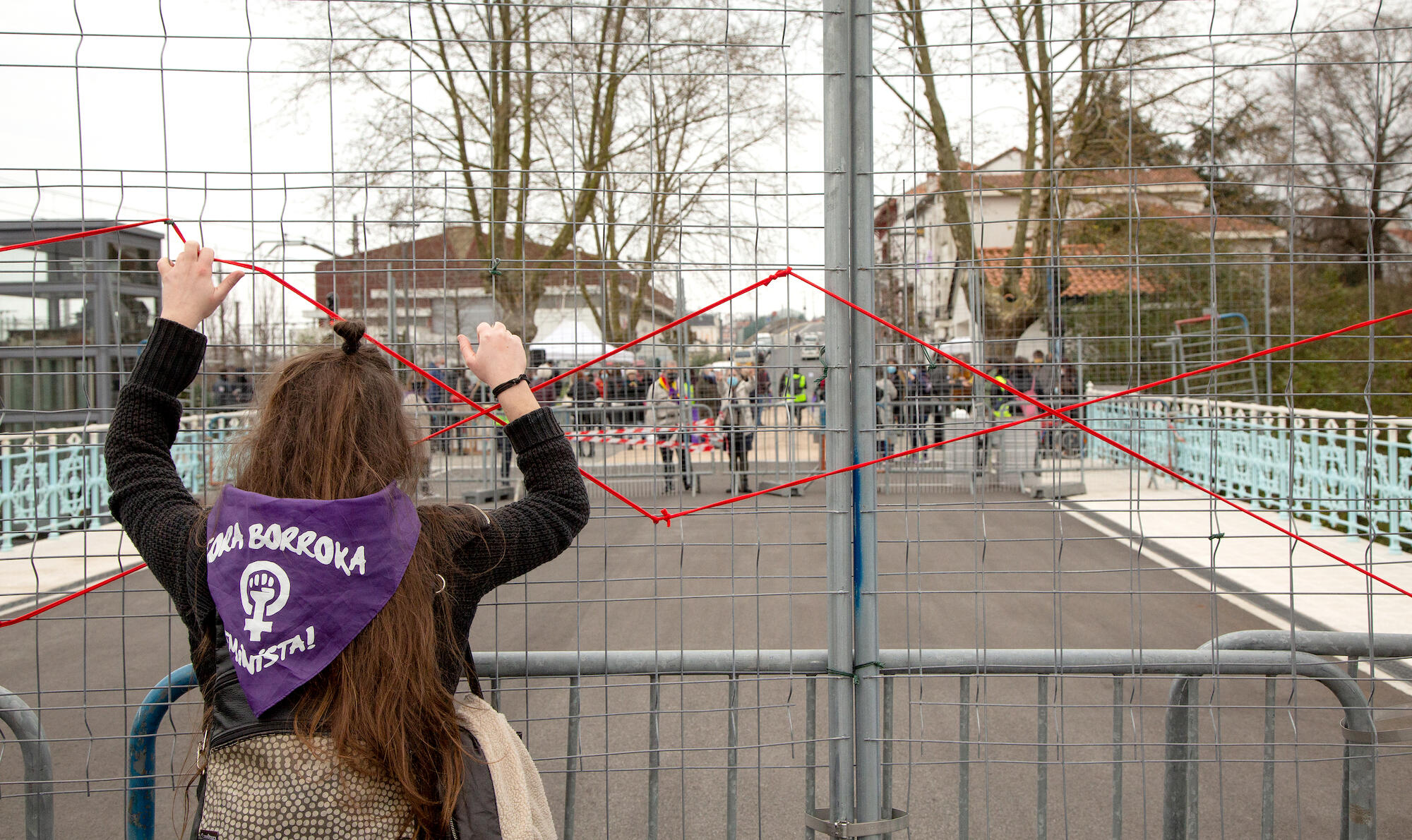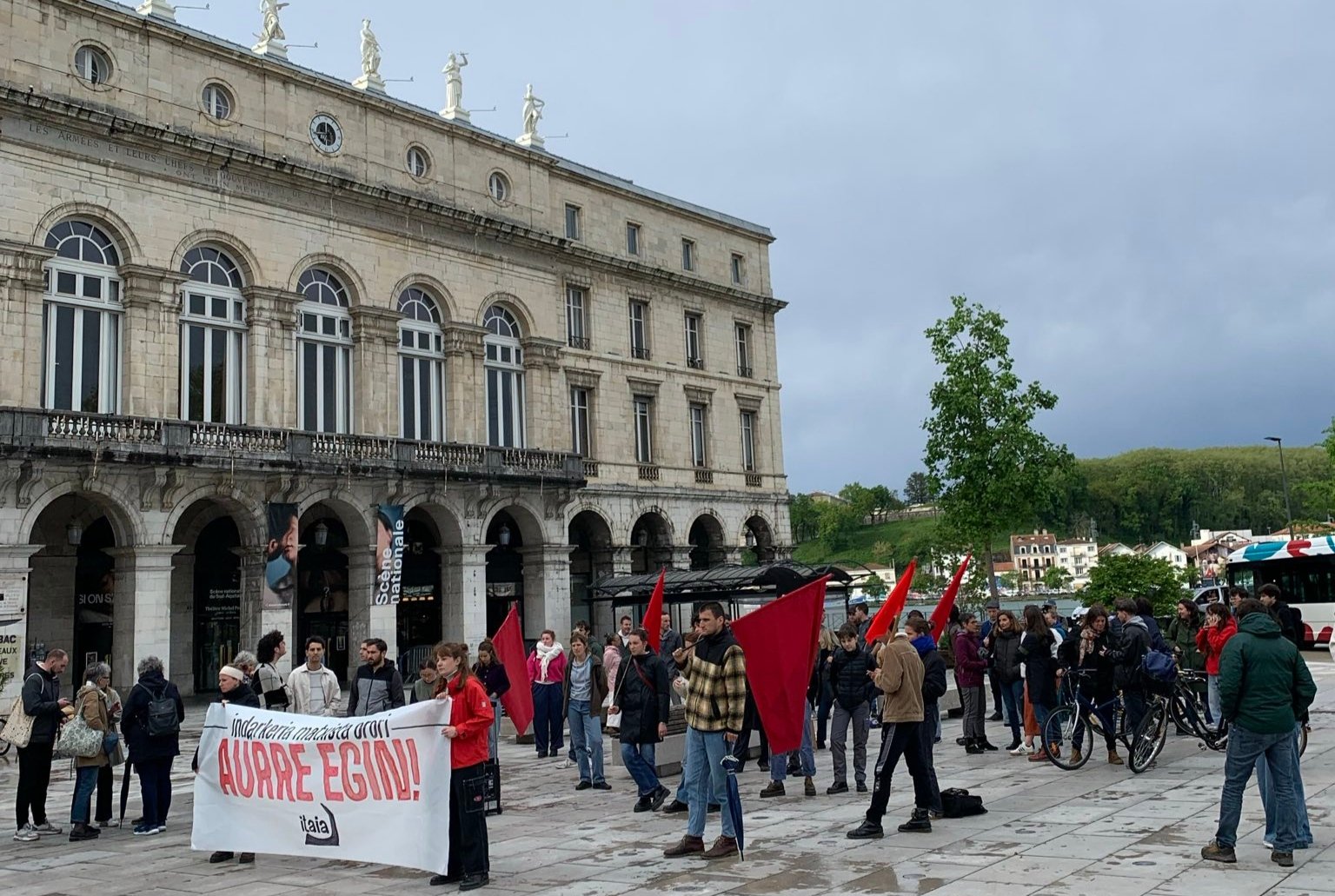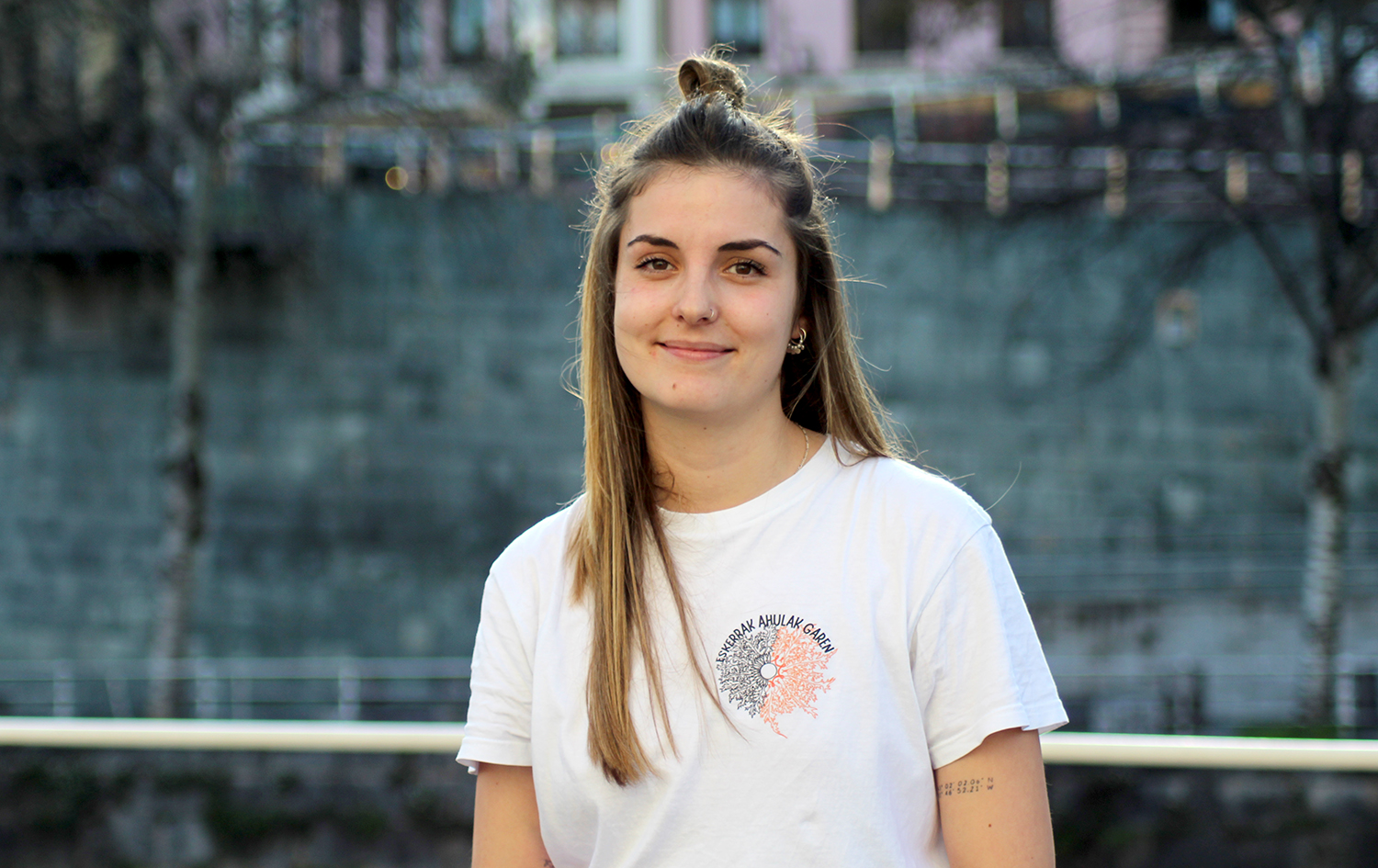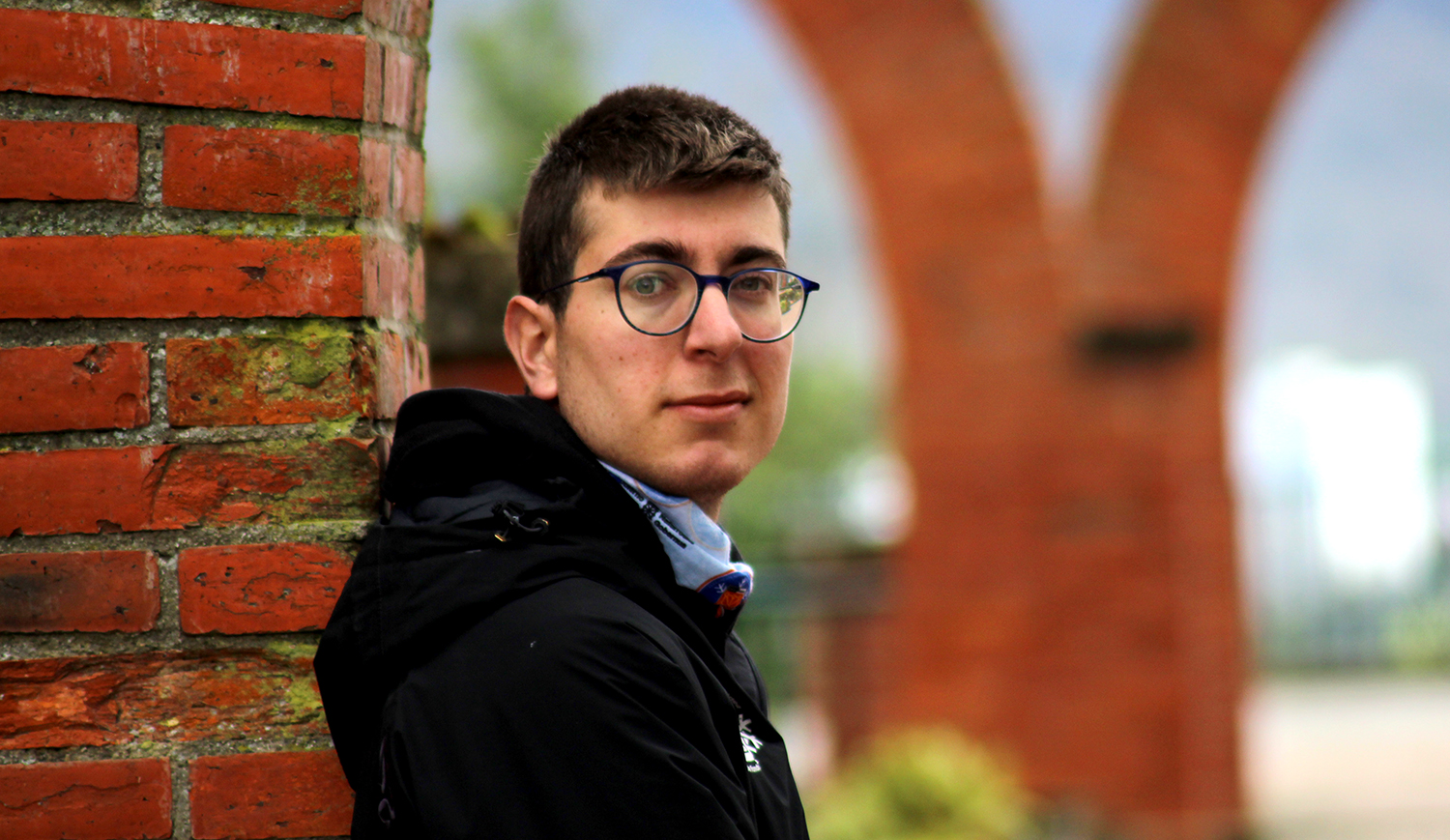"Organize forces, join the feminist struggle!" The Feminist Movement calls to fill the streets on March 8
- In contrast to what has been done in the last two years, the Feminist Movement of the Basque Country has not called a strike on 8 March. Instead of the strike, mobilisations have been called against it, calling on the organisation and the fight.

The Feminist Movement of Euskal Herria appeared this Tuesday before the media in the Plaza del Castillo de Pamplona. On the occasion of International Working Women ' s Day, they have made known the approach proposed for that day. Despite the success of the strikes of the last two years, this year the movement has decided to change the form of struggle and has called mobilizations under the slogan “Organize forces, join the feminist struggle!”, with the aim of filling the streets against the current social model.
As in the strikes of the years 2018 and 2019, the feminist movement has implied that once again it wants to make a demonstration of strength: “This year we will refill the streets and say loud and clear that this model of society is uninhabitable for most people, especially for women and dissident genders, and unsustainable for the planet.”
During the day, they have reflected on the previous years, and have redefined and opened the concept of strike, managing to include in the strike the free works carried out by the majority of women. “They have also served us to reflect with each other, to accumulate strength and to think about new strategies,” they valued.
However, since the strike is not an objective, but an instrument for fighting, this year they have been in favour of changing the streets. In the face of this decision, some have denounced that they have wanted to imply that in the feminist movement there is “an impotence or a ceasefire”, and have denied that idea. The strike, in his words, is “an instrument to denounce and reclaim another social and productive model,” and, regardless of whether or not it is done, they continue in that transformative effort.
On March 8, they want to highlight the need for organization, seeking to strengthen feminist groups, collectives and assemblies towards individualistic feminism. “In a world so influenced by neoliberalism, in a world that promotes savage and atomized individualism, we must build a committed feminist community, overcoming the passivity generated by social networks,” they said.
On the other hand, they seek to position themselves against “formal equality”: “We do not want formal equality, nor equality to consume without limits, nor to exploit people and territories, we do not want neoliberal recipes that deepen the exploitation of many women in other places of the world and in our environment”. In this sense, they have called for internationalist fraternity and affirmed: “We work locally with the global vision that connects us with our feminist sisters around the planet.”
Finally, they have called for feminism that includes all these aspects, the radical, necessarily. This feminism will be opposed, among other things, to the loss of rights of international women, to ecological disasters, to wars, to expropriations of land, to the denial of the right to decide, to forced displacement, to policies of death, to the commodification of bodies, to heteronorma, to racism, to xenophobia, to the extreme right and to fascism. “Our feminism has to face the setback that has been given in the social and political rights obtained with so much effort. But today we say it loud and clear, you have us in front!” they have proclaimed.
Mobilisations
On March 8, mobilizations have been convened in all the capitals of Euskal Herria, as well as in all the neighborhoods and towns. Here is the list of calls:
Navarra and Pamplona
Decentralised mobilisations will take place in the villages and neighbourhoods at 12:00 in the morning. In Pamplona/Iruña, the mobilization will start from the old part and will have as a meeting point the plaza del Castillo.
Centralized mobilizations will be held in the counties at 18:00 in the afternoon
Gipuzkoa and Donostia
Decentralised mobilisations will take place in the villages and neighbourhoods at 12:00 in the morning.
Centralised mobilisations will be held in the afternoon at 18:00.
Baiona
At 11:00 a.m., the mobilisation will start before the Pause at Lesseps Pier 18.
Bilbao
The mobilization will start from the Sacred Heart of Jesus at 13.00.
Vitoria-Gasteiz
The mobilization will start at 17:30 from the Plaza de San Antón.

Errepikatu nirekin: Sara Millerey. Ez dezagun ahaztu bere izena. Transfeminizidioaren biktima da Millerey: gorrototzaile transmisogino batek torturatu zuen, besoak moztu zizkion eta bizirik bota zuen ibaiertz batera. Bi orduko agoniaren ondoren hil zen.
Errazagoa da J.K... [+]
Many Basque feminists have been disappointed to learn that writer Chimamanda Ngozi Adichie has externalized pregnancy, meaning that a surrogate has fertilized her baby for money.Adichie is the author of the essay We should all be feminists, among others. They have ignored the... [+]
Indartsua, irribarretsua eta oso langilea. Helburu pila bat ditu esku artean, eta ideia bat okurritzen zaionean buru-belarri aritzen da horretan. Horiek dira Ainhoa Jungitu (Urduña, Bizkaia, 1998) deskribatzen duten zenbait ezaugarri. 2023an esklerosi anizkoitza... [+]
Gozamen aparta bezain deskribatzeko zaila dakar, norbaiten hitzak irakurri edo entzun ostean, zera pentsatzeak: “Horixe zen neu aurreko hartan azaltzen saiatu nintzena!”. Idazlea eta itzultzailea da María Reimóndez, eta galegoz aritzen da, hizkuntza... [+]
Orain arte desgaituak ez diren pertsonekin lehiatu da Uharteko Ipar Eski Taldeko Eneko Leyun eskiatzailea (Iruñea, 1998). 2024-2025 denboraldian, lehenengo aldiz parte hartu du Adimen Urritasuna duten Pertsonentzako Iraupeneko Eskiko Espainiako Txapelketan. Urrezko... [+]
Joan den urte hondarrean atera da L'affaire Ange Soleil, le dépeceur d'Aubervilliers (Ange Soleil afera, Aubervilliers-ko puskatzailea) eleberria, Christelle Lozère-k idatzia. Lozère da artearen historiako irakasle bakarra Antilletako... [+]





















